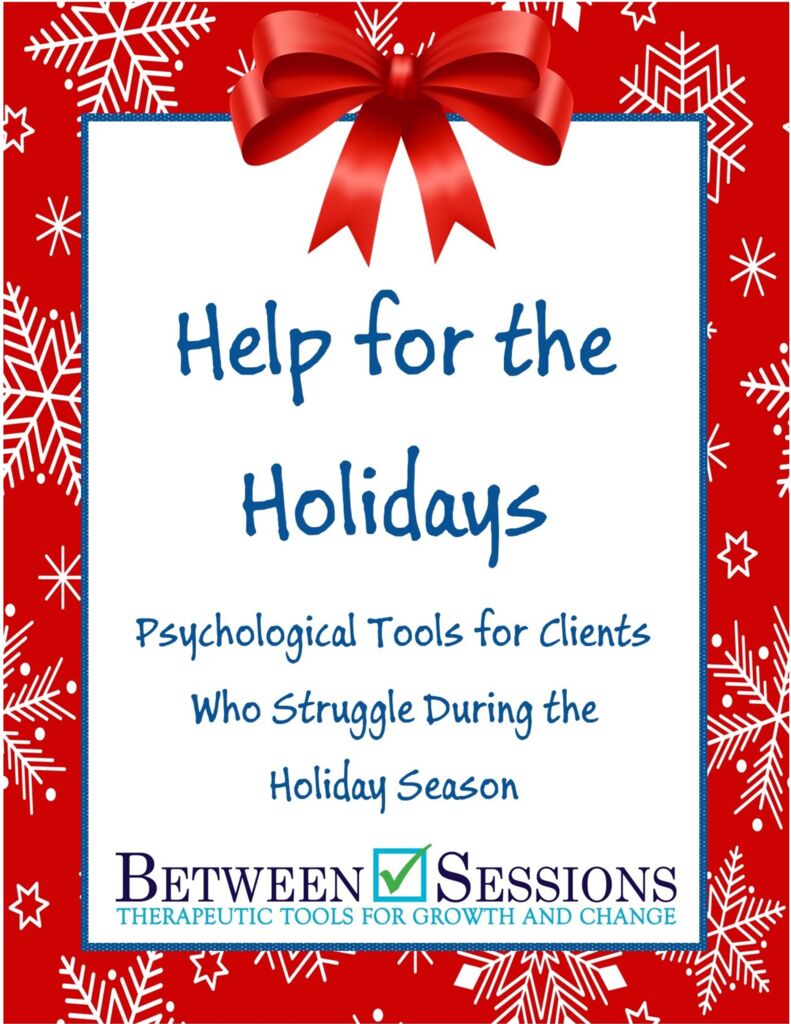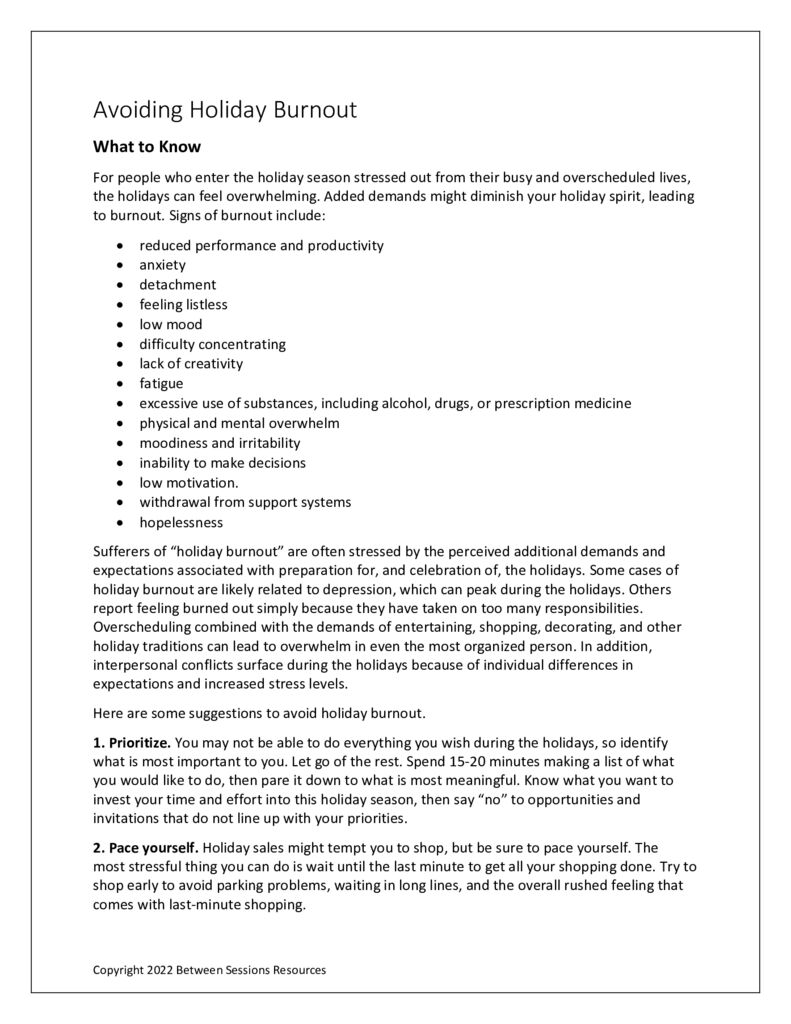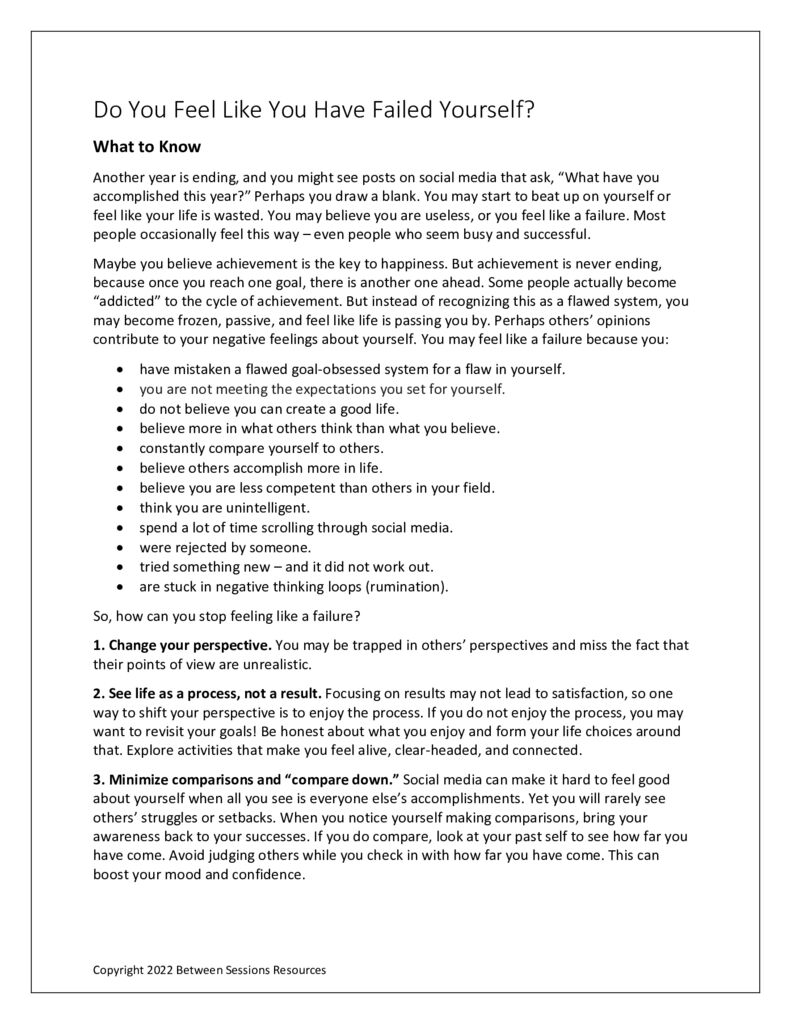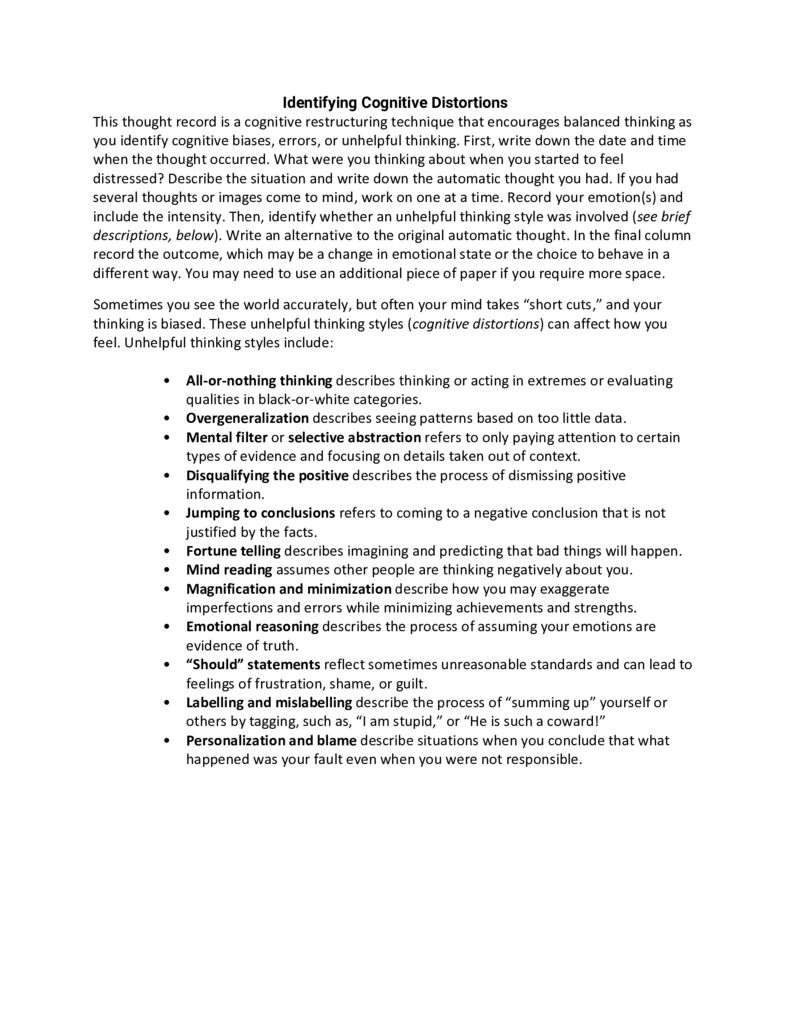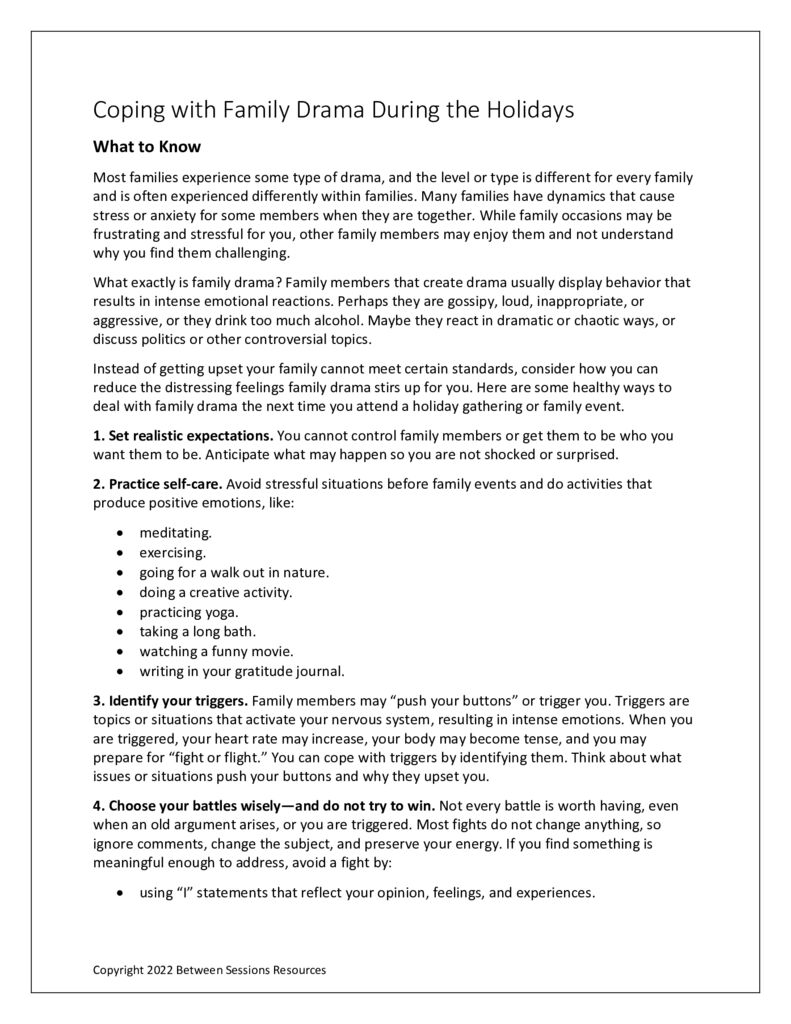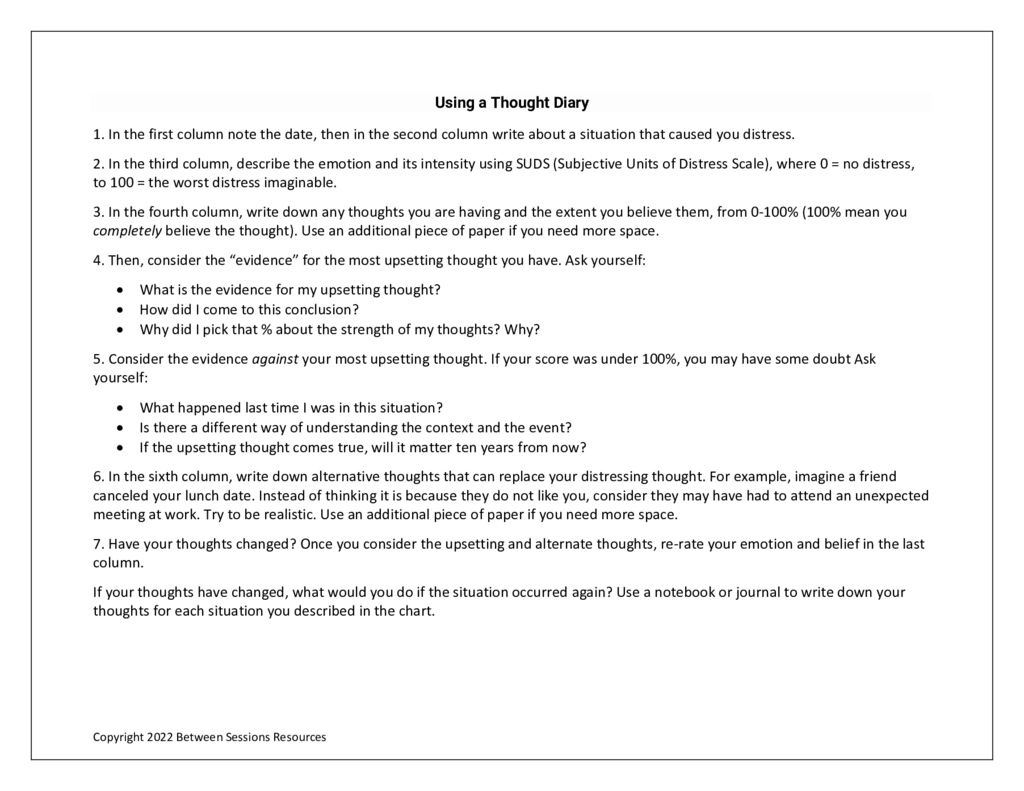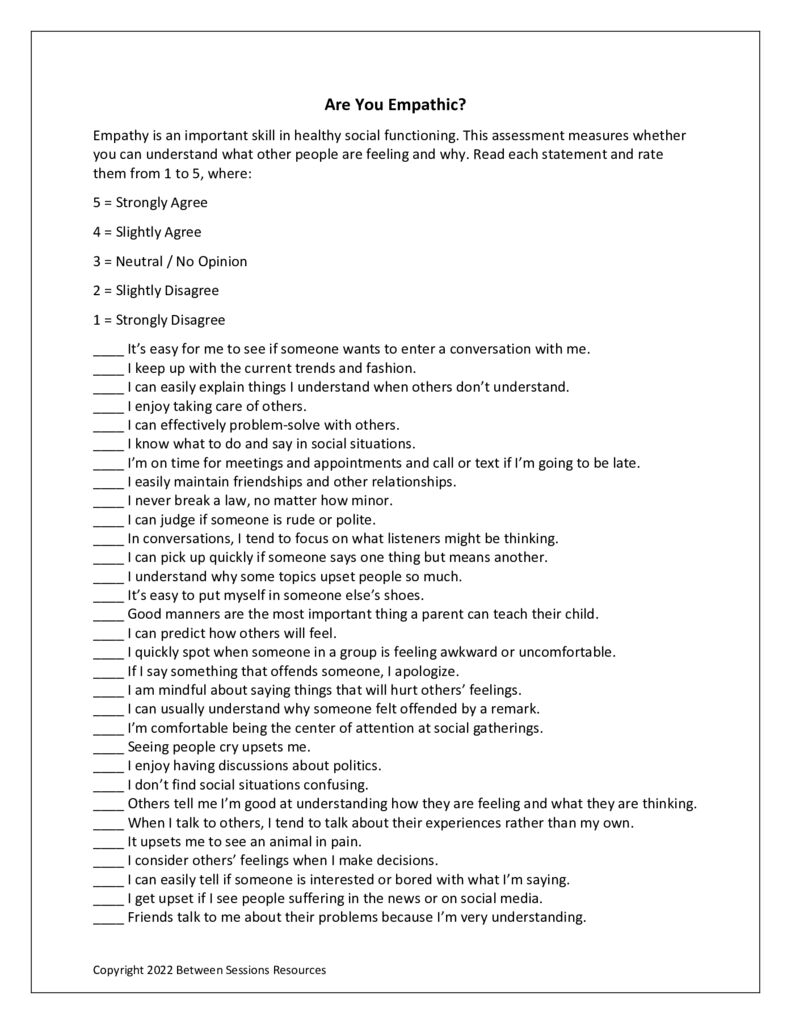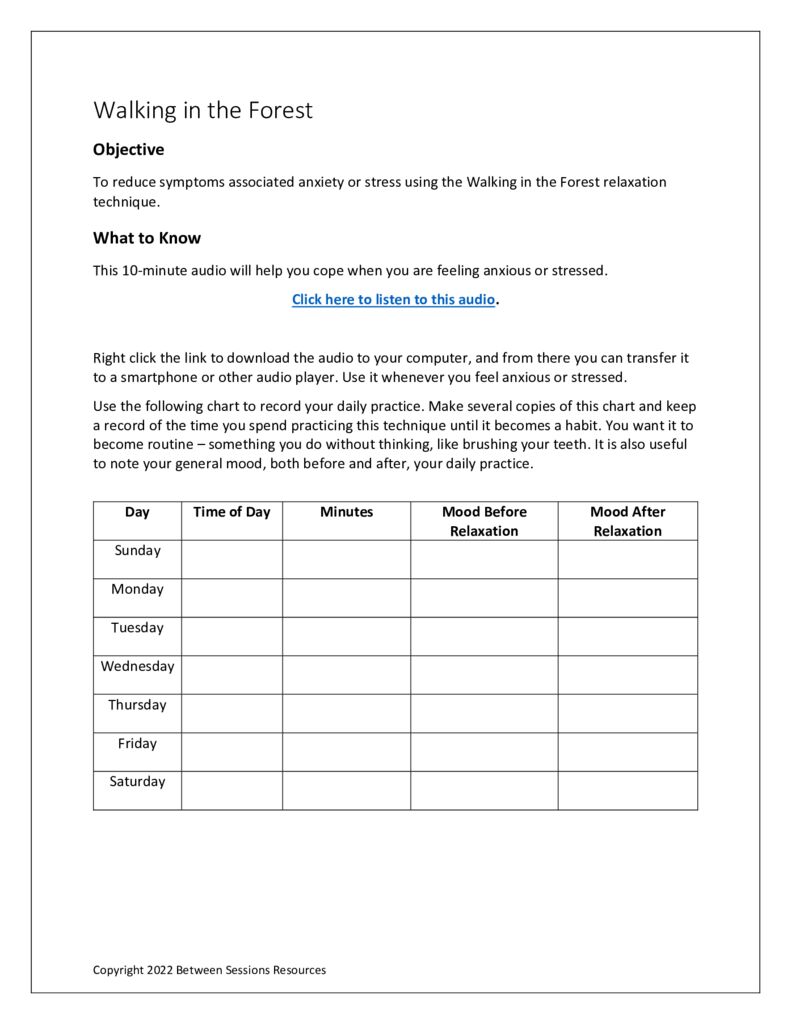This workbook contains 15 worksheets to help clients who are struggling with holiday problems like loneliness, family estrangement, depression, and more. (1222, holidays, stress, depression, drinking problems)
This worksheet is designed to help people who are over-stressed by the holidays and starting to feel depressed rather than enjoying what the holidays can offer. The worksheet gives 8 recommendations for handling holiday burnout and a series of questions to help people find ways to deal with this common problem. (1222,
This worksheet is designed for people who are down on themselves because they have not accomplished all that they wanted. The worksheet helps people see that this attitude is not at all helpful to their well-being and gives them 10 strategies to overcome their habit of self-criticism. (1222, depression, self-esteem, negative thinking)
This worksheet teaches clients the technique of cognitive restructuring. The different kinds of cognitive distortions are explained and then clients are asked to keep a chart where they identify their automatic thoughts and substitute more realistic alternative thoughts. (1222. CBT. cognitive restructuring thought changing)
This worksheet is designed to help people develop a daily habit of relaxation to reduce stress and improve their physical and mental health. The worksheet suggests various relaxation activities and includes a chart to help people keep track of them. (1222. relaxation response, stress reduction)
This worksheet is designed to give people a wide range of strategies to deal with family problems that typically occur during the holidays. Strategies include setting realistic expectations, self-care, identifying triggers, choosing to accept family members as they are, taking “stress breaks,” and more. (1122, family therapy, holidays, stress management, interpersonal conflict, interpersonal effectiveness)
This 7-column form is designed to help people keep track of the situations and thoughts that cause them distress and create “rebuttals” to thoughts that are dysfunctional. The form is frequently used in CBT therapies for anxiety disorders and depression. (1122, anxiety, exposure therapy, CBT, dysfunctional thinking, emotional regulation)
This tracking tool helps your clients identify and track the triggers that precede their problem behaviors. The chart lets clients track up to 8 triggers for an entire month. (1122, anxiety, data recording, assessment, depression, addiction, emotional regulation)
This assessment asks people to rate statements that would reveal empathy. It then gives an interpretation of a person’s score. This scale was adapted from Baron-Cohen and Wheelwright’s Empathy Quotient. (0922, empathy, emotional intelligence)
This 10-minute audio was created to help people cope when they are feeling anxious or stressed. (0922, anxiety, relaxation techniques, audio)

